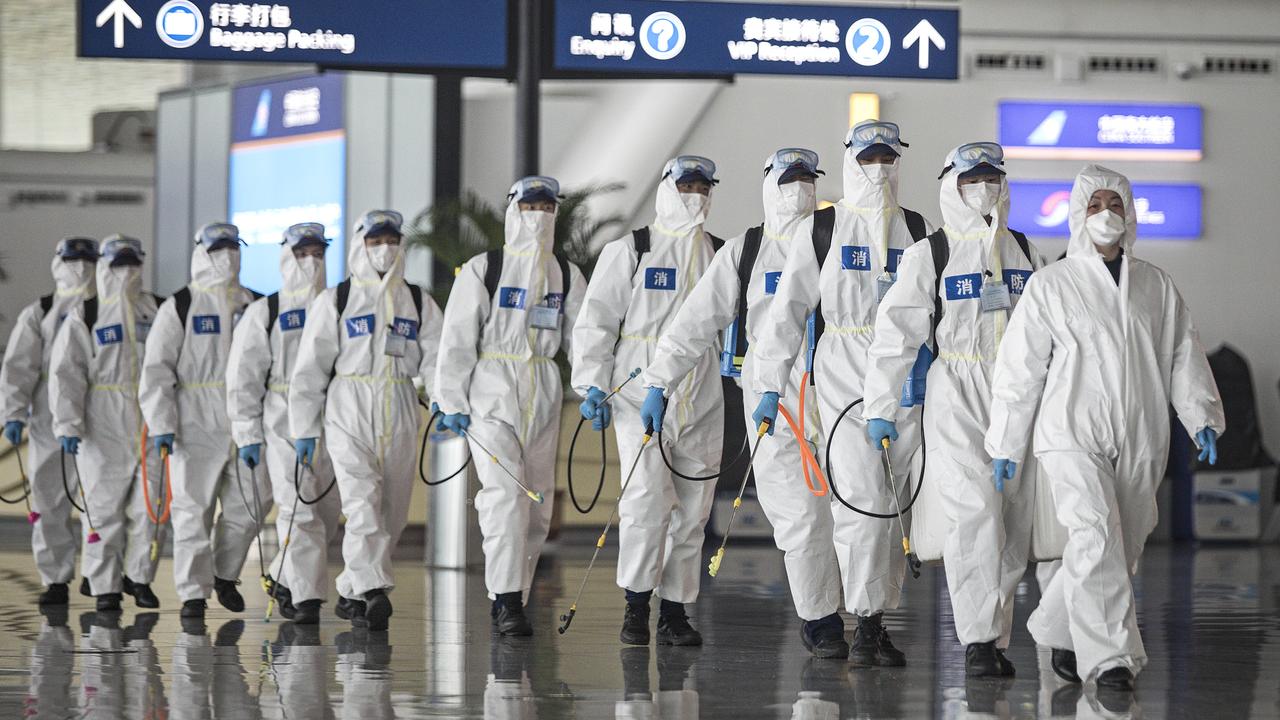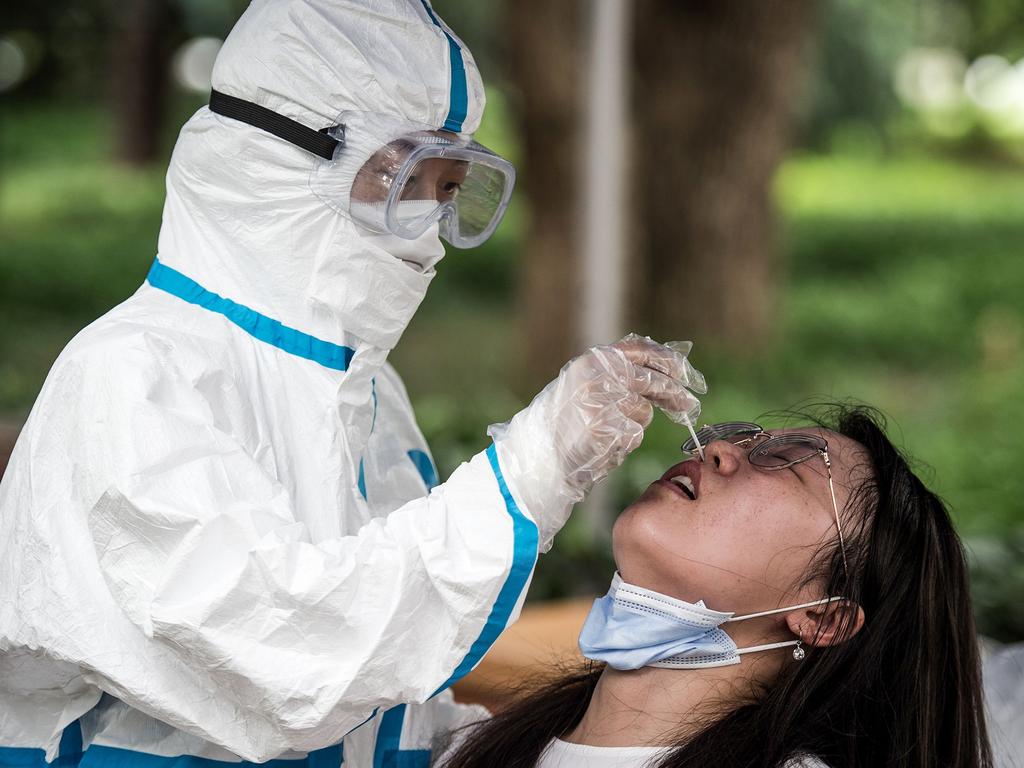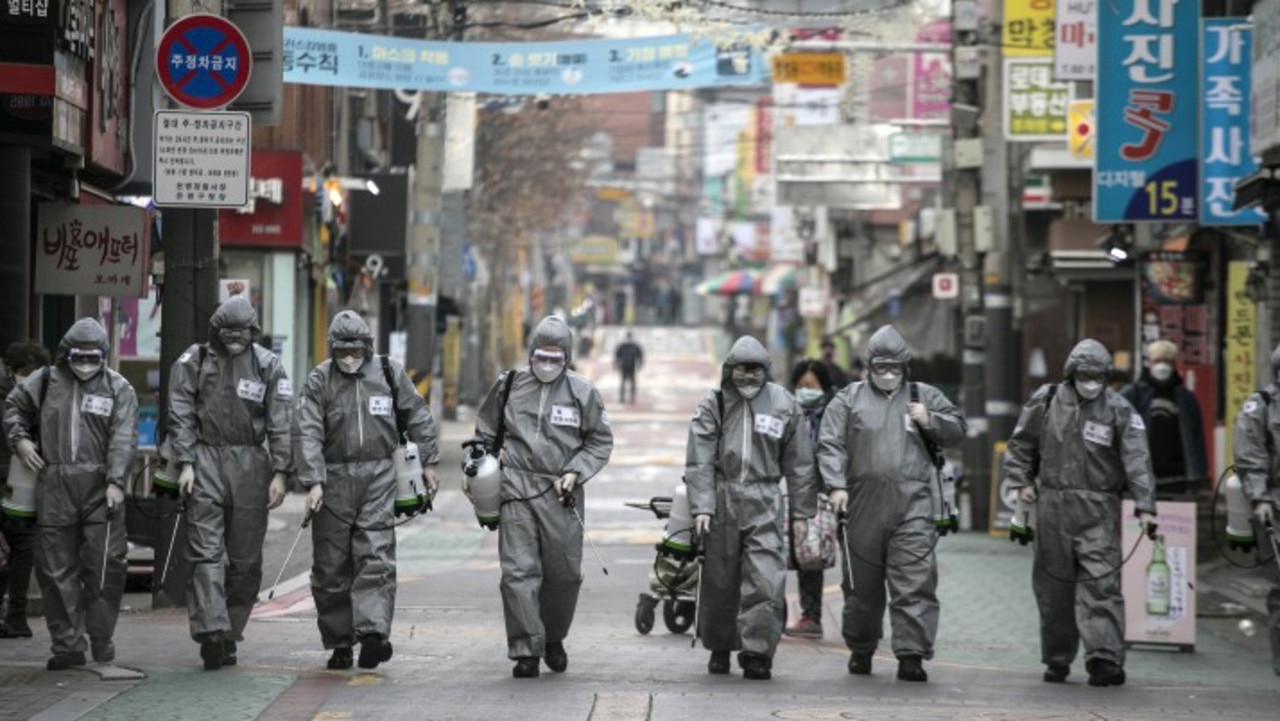Coronavirus Australia: Diplomats in China ‘could have done better’
Australian diplomats in China have been accused of taking too long to inform the government about coronavirus when it started in Wuhan.
A senator has accused Australian diplomats living in China of taking too long to inform the Government on how serious coronavirus was, despite the illness killing hundreds across China.
South Australian senator Rex Patrick, who applied to see the official correspondence through a Freedom of Information (FOI) request, said Australian diplomats living in China “could have done better”.
“Aussie diplomats in China were slow to report on early stages of the COVID-19 outbreak and had few sources of info beyond the internet,” Mr Patrick said.
“Taxpayers pay well for their presence; they could have done better.”
The previously unseen correspondence showed Australian diplomats didn’t start sending detailed information on coronavirus back to the Government until the end of January.
By then, China was recording more than a thousand new coronavirus cases each day and had lost hundreds of people to the disease.
RELATED: Follow our live coronavirus updates
RELATED: India records highest daily tally of coronavirus cases

China first alerted the World Health Organisation (WHO) to the disease on December 31 when it told the global health authority it had detected a “cluster of cases of pneumonia of unknown cause” in the city of Wuhan. Chinese health authorities formally identified the virus a week later.
Two days after China alerted WHO, Australia’s Department of Foreign Affairs and Trade (DFAT) received its first formal message from diplomats.
The official cable titled, “Reports of a respiratory disease outbreak in Wuhan lead to rumours of a SARS-like virus”, was sent by Australia’s consulate in Shanghai.
Six days after the brief message to DFAT, Australia’s Shanghai consulate got in touch again on January 8.
This message included a 10-point update on a “possible respiratory illness outbreak in Wuhan” and said local health authorities had confirmed 59 cases.
Shanghai consular officers said they would “continue to monitor the outbreak and provide regular updates, particularly if there are changes to the situation”.
Two days after the 10-point update, Australia’s health department issued an urgent update on the virus but warned little was known about the “viral pneumonia”.
“More information around human-to-human or prolonged transmission, and potential vectors is needed before a formal risk assessment can be completed,” the January 10 document stated.
On January 17, the Shanghai consulate contacted the Australian Government again and said WHO had “confirmed the Wuhan respiratory illness is a coronavirus”.
“Human-to-human transfer has not been confirmed,” the consulate added.
RELATED: Virus outbreak linked to nude resort
RELATED: WHO didn’t visit Wuhan on China virus trip

Australia’s Beijing embassy did not start sending formal diplomatic updates until January 21 when an official cable confirmed four people had died from coronavirus and Wuhan had confirmed more than 200 cases in a single day.
The cable also noted Chinese health authorities had confirmed human-to-human transmission was possible.
“President Xi (Jinping) has called for no effort to be spared. Health authorities have launched China’s highest level of prevention and control measures,” the cable reads.
“As the nation embarks on mass migration at week’s end to celebrate Chinese New Year, there is a risk the virus will spread further.
“But, so far, transmission rates and the virulence of the strain do not appear to be as severe as was the case with SARS (severe acute respiratory syndrome).”
Mr Patrick said our diplomats were “well behind the game” when informing Australia about coronavirus.
“In the course of that first month, Australia’s diplomatic and consular posts in China – the embassy in Beijing and consulates-general in Chengdu, Guangzhou, Hong Kong, Shanghai and Shenyang – managed to produce remarkably little reporting beyond what could be obtained from public sources,” Mr Patrick told the ABC.
“Australia’s diplomatic service is well resourced to get information quickly, to tap informed sources and report important developments before they hit the headlines.
“In this case, however, our diplomats in China were well behind the game.
“They were slow in reporting and clearly have few sources that can tell them what is really happening behind the Chinese communist authorities’ public statements.”
Coronavirus had already spread to the United States, Japan, South Korea and Thailand by the time Australia’s Beijing embassy sent its first official cable on January 21.
Australia’s first coronavirus case was detected on January 25 when a Victorian man returned from Wuhan and tested positive.
To date, Australia has confirmed more than 25,670 cases and has lost 611 people to the virus.
RELATED: Why men are hit harder by COVID-19
RELATED: Anti-mask protests held across the world





